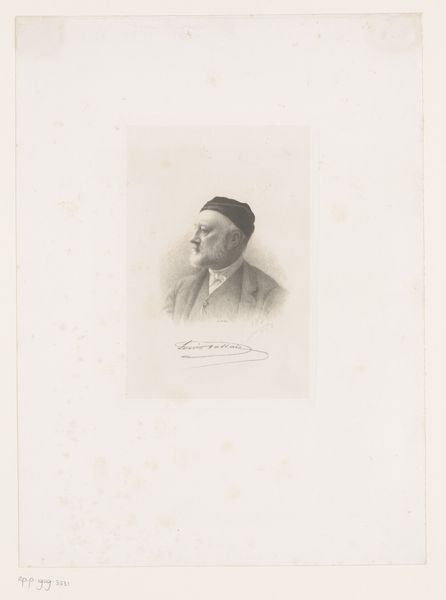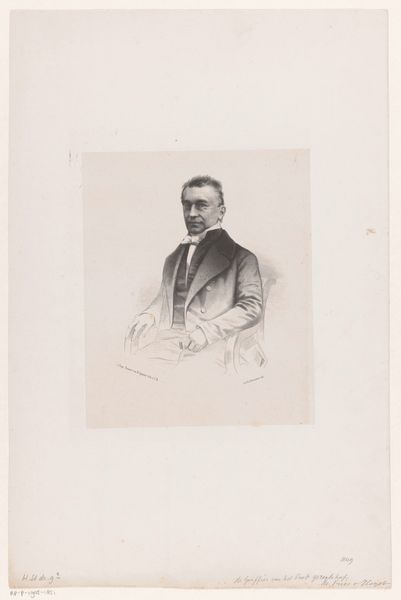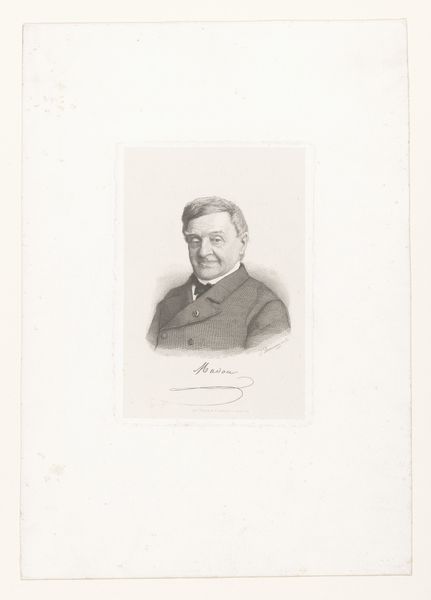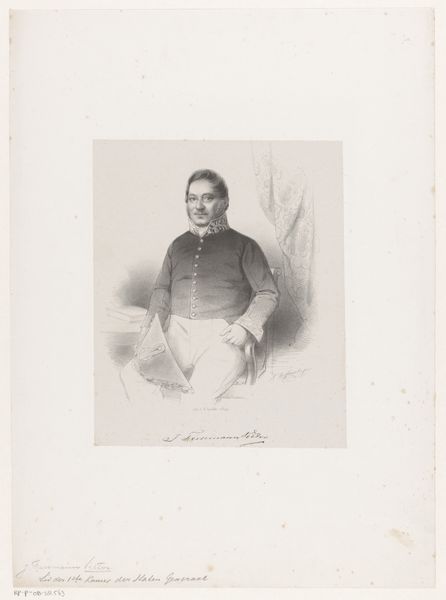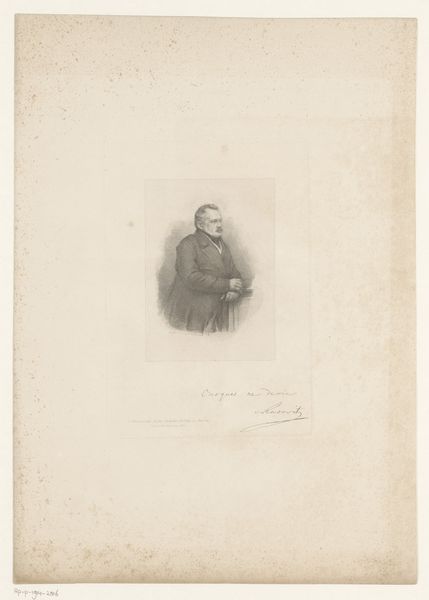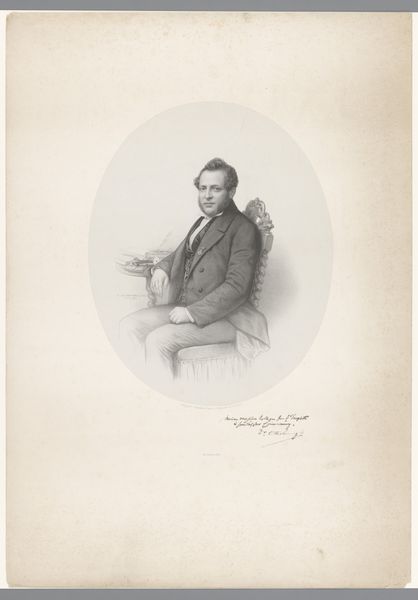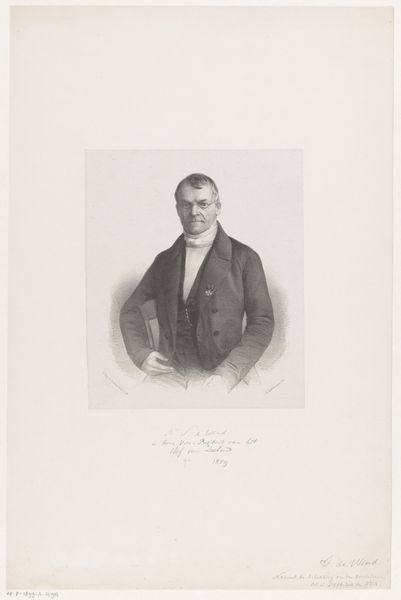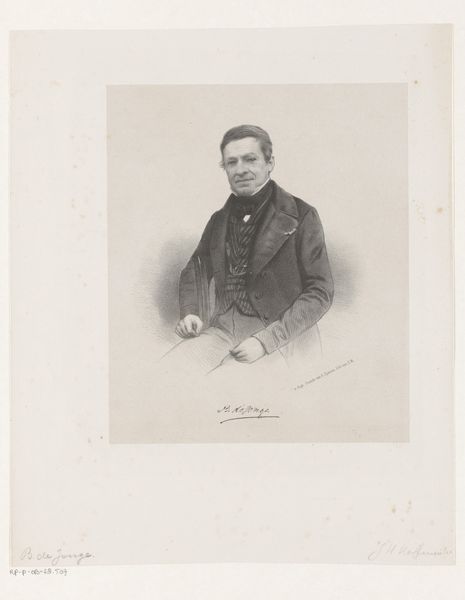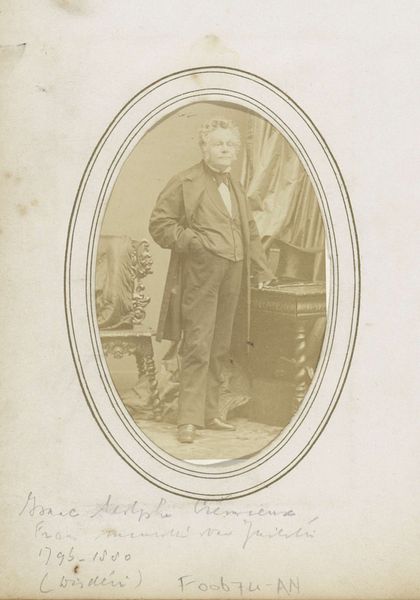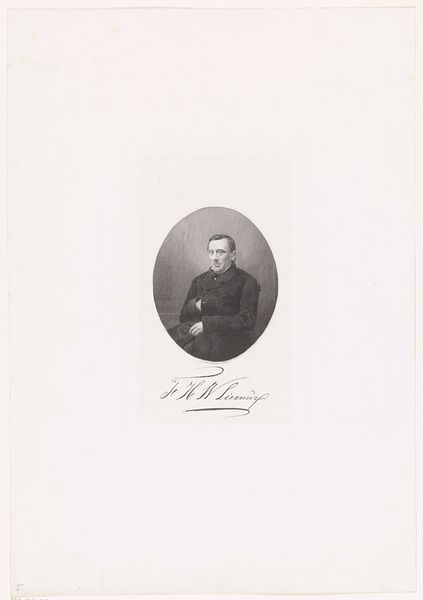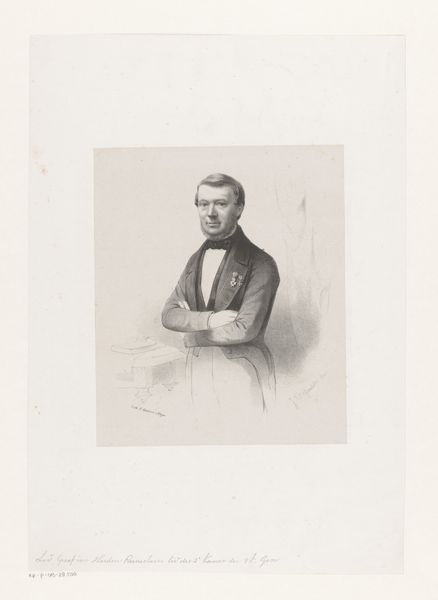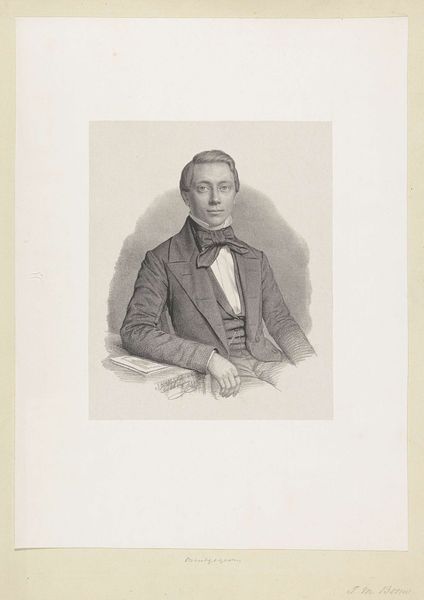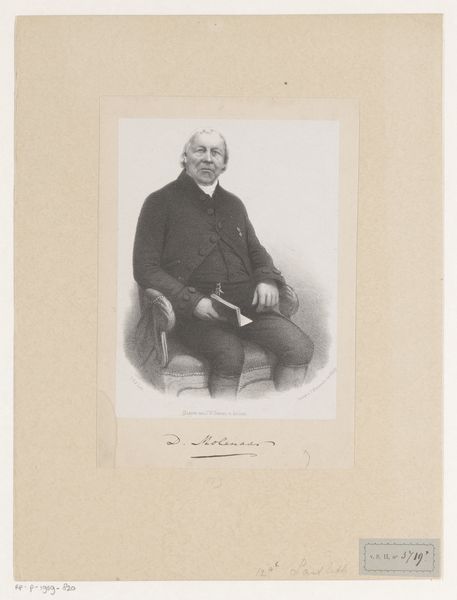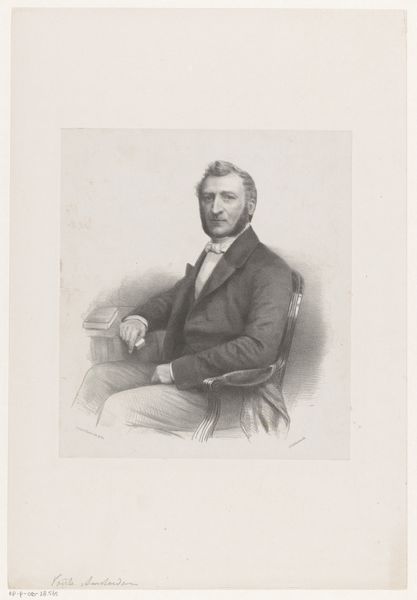
drawing, print, pencil
#
portrait
#
drawing
#
16_19th-century
# print
#
pencil drawing
#
romanticism
#
pencil
#
realism
Dimensions: height 481 mm, width 355 mm
Copyright: Rijks Museum: Open Domain
This is Émilien Desmaisons' portrait of Prince Augustus Frederick, Duke of Sussex, created using lithography. Lithography, unlike traditional printmaking, relies on the chemical repulsion between oil and water. The artist draws on a flat stone or metal plate with a greasy crayon, then applies water. The water adheres to the bare areas, while the greasy image repels it. When an oily ink is rolled over the surface, it sticks only to the drawn image. This allows for incredibly detailed and nuanced tonal variations. The soft, almost photographic quality of this print is a testament to Desmaisons' mastery of the technique. But it also speaks to the broader context of industrial and capitalist expansion in the 19th century. Lithography enabled the mass production of images, making art more accessible but also potentially devaluing the hand-made. In this context, we can consider the labor involved, from the quarrying of the lithographic stone to the skilled hand of the printer, and how these processes shaped both the image and its reception. Looking closely at materials, making, and context allows us to fully appreciate its meaning and impact.
Comments
No comments
Be the first to comment and join the conversation on the ultimate creative platform.
